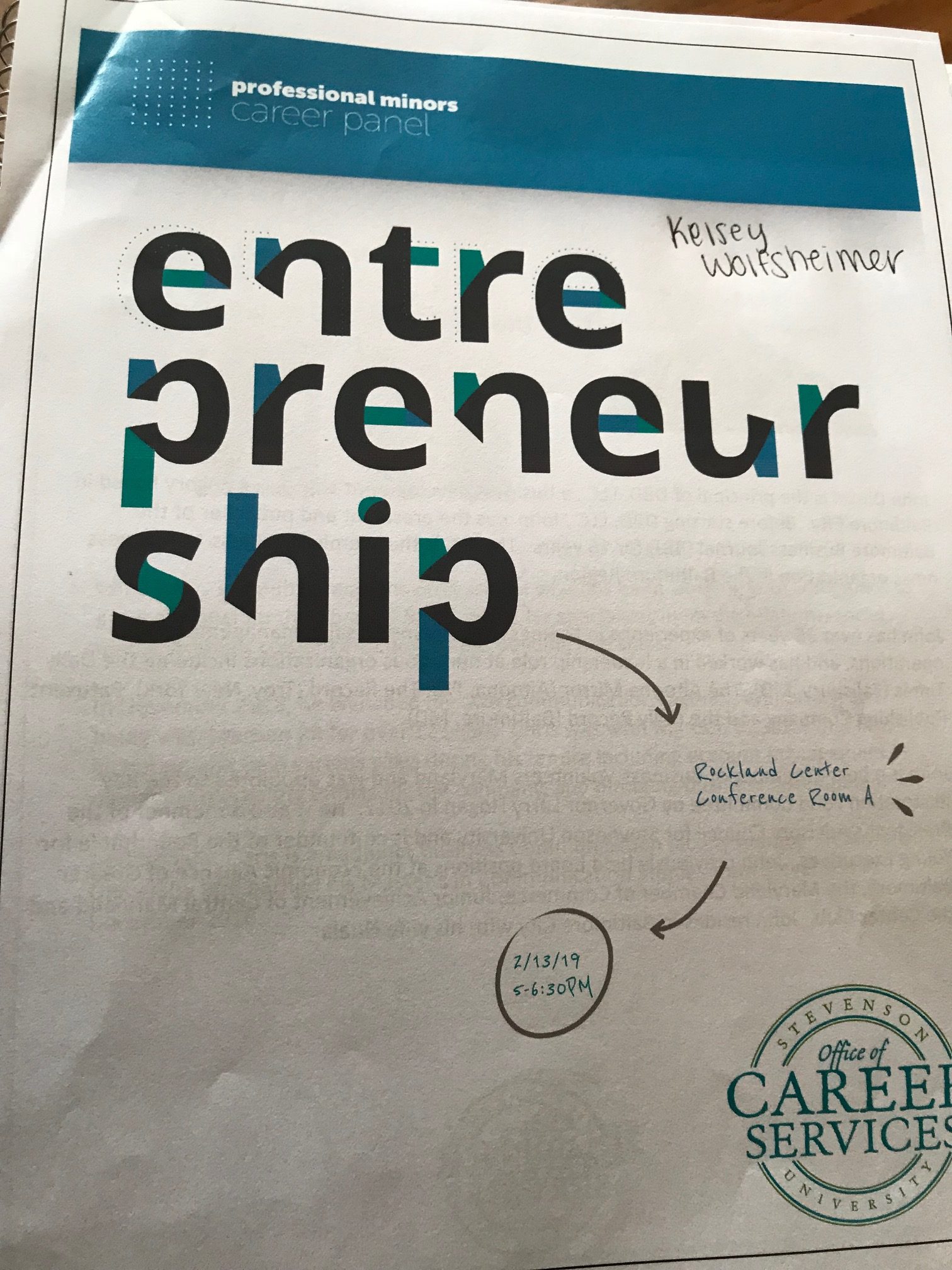I learned a lot at the career panel. John Dinkel, owner of Dinkel Business Development, LLC. Has over 25 years of experience in business development. John started his business after his sister-in-law died of cancer and decided life was too short. Some key tips on how to start a business Dinkel offered are start working your network now and talk to as many entrepreneurs as you can, get as much advice as you can and work as hard as you can, but be humble. Chris Daley, owner of Whirlaway, launched his communication agency in November 2018. Daley’s key advice on how to start a business are build relationships, connect with people on LinkedIn, focus on your strengths, but know what your weaknesses are, and it is all about the quality of what you know not the quantity. Andrew Murphy, owner of Flying Frog Publishing, has a highly successful 16-book series of fun fact titles. Murphy’s tips for starting a business are you need to hustle and put your name out there. Elizabeth Trimm, branch manager for the largest home city Enterprise Rent-A-Car branch in the Baltimore Division, decided to start her own branch since she is a single mom and was making more money than her bosses at her first branch. Trimm’s top three tips on starting a business include knowing what your “why” is, set short-term goals that are achievable, and don’t let anyone get in your way. Andy Brown, owner of a frozen pizza manufacturing company, Eat Pizza, graduated from Stevenson in 2012 and also owns Capitol Music and Andy’s Pizza in Tyson’s Corner, VA. Brown’s advice is that no matter what you are going to need to be able to sell your product or business and that you are going to need to work harder than before. Last on the panel was Garrett Pfeifer. Pfeifer, owner of Maryland Brand Management, stepped into the family business of clothing manufacturing. His advice was never be worried about what people think about you, making the first sale is tough and takes a lot of work, and you just have to go out there and promote your business.
The event was connected to our course in a couple of ways. First, students in the course may have a career goal of digital publishing, so this helps introduce them to the world they eventually want a career in. Secondly, in the course we are going to be helping AWE with their website or something related to digital publishing. By attending the event we were able to learn the ins and outs of what a good business is so that way we can incorporate those tips and advice into our project for AWE. My career goal is to be a labor and delivery nurse; however, I may continue my education to becoming a Nurse Practitioner or Physician’s Assistant and open my own practice. If I open my own practice, I would need to know how to start my business and how to get my name out there, which was addressed in depth at the career panel. I also currently have started two side businesses with my fiancé, so hearing their advice on how to develop or businesses more has definitely helped on where to go next.
